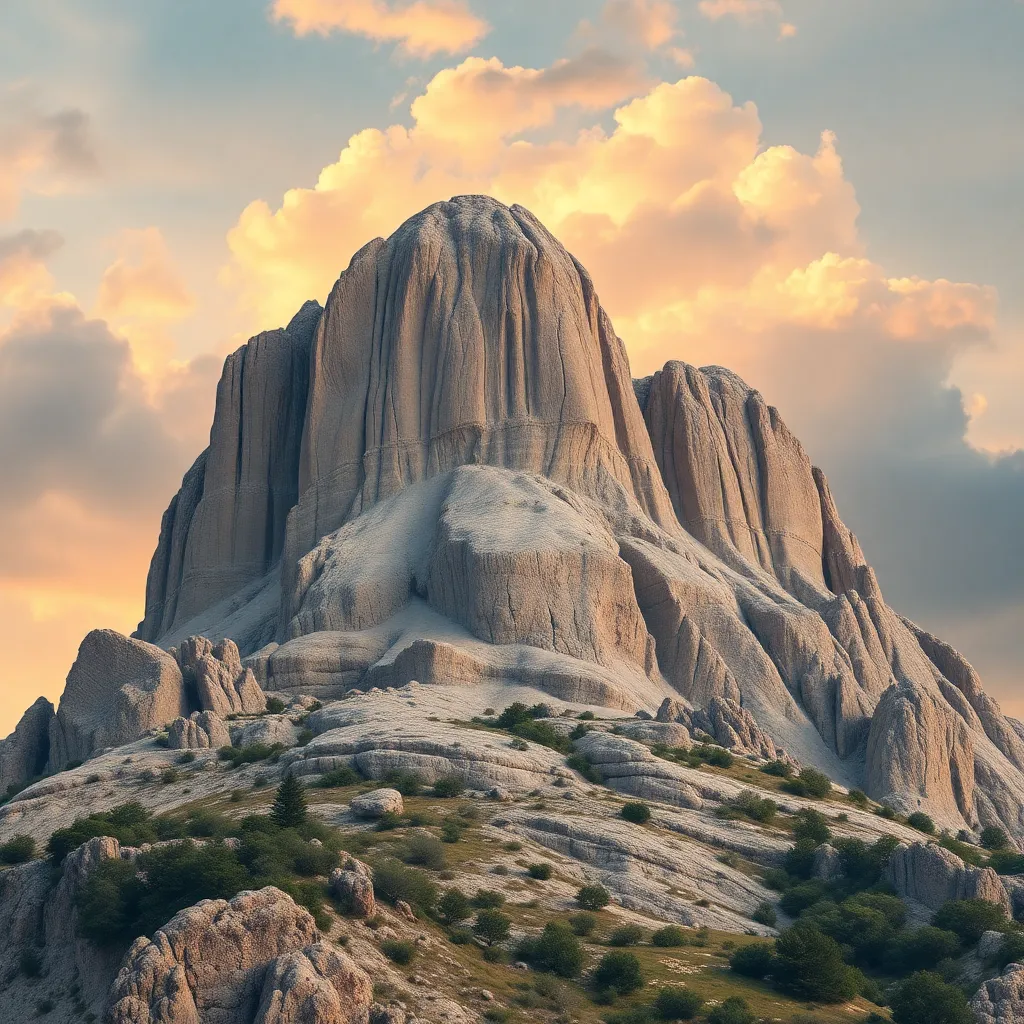Mount Olympus in Popular Culture: From Literature to Film
I. Introduction
Mount Olympus, the mythical abode of the Greek gods, holds a significant place in Greek mythology. It is not just a physical location; it symbolizes the divine realm where the gods reside, overseeing humanity and the universe. Its grandeur and mystery have inspired countless works of art, literature, and film.
This article explores the profound influence of Mount Olympus across various forms of popular culture, from ancient literature to contemporary films. By examining its historical context, representations in classic and modern literature, cinematic portrayals, television adaptations, and its role in video games, we aim to highlight the enduring legacy of Mount Olympus in the collective imagination.
II. Historical Context of Mount Olympus
Mount Olympus has its roots deep in Greek mythology, serving as a central figure in the religious beliefs of ancient Greeks. It was considered the home of the twelve Olympian gods, each representing different aspects of life and nature.
The gods of Mount Olympus each possessed unique attributes:
- Zeus: King of the gods, god of the sky and thunder.
- Hera: Queen of the gods, goddess of marriage and family.
- Poseidon: God of the sea and earthquakes.
- Athena: Goddess of wisdom and warfare.
Over time, the representation of Mount Olympus evolved through various texts, including Homeric epics and Hesiod’s works, establishing a rich tapestry of divine interactions and human affairs.
III. Mount Olympus in Classic Literature
The significance of Mount Olympus is profoundly illustrated in classic works of literature, particularly in the epics of Homer. In “The Iliad,” the gods frequently intervene in human battles, showcasing their power and influence from their lofty home. Similarly, “The Odyssey” presents a world where divine beings guide and challenge the hero Odysseus on his journey home.
Hesiod’s “Theogony” further solidifies the concept of Mount Olympus by detailing the genealogy of the gods and establishing a divine hierarchy. This text is pivotal in understanding how the ancients viewed the structure of their pantheon and their interactions with the mortal realm.
The influence of these works has reverberated through literature, inspiring countless adaptations and interpretations across various genres and cultures.
IV. Mount Olympus in Modern Literature
In contemporary literature, Mount Olympus has been reimagined in numerous ways, particularly in young adult fiction. A notable example is Rick Riordan’s “Percy Jackson” series, which introduces a new generation to Greek mythology through a modern lens.
These retellings often explore themes such as:
- Identity and self-discovery.
- The battle between good and evil.
- The importance of friendship and loyalty.
The character portrayals in these stories often deviate from traditional depictions, presenting the gods and heroes as flawed and relatable figures, which resonates well with today’s readers. This has significantly impacted young adult literature and cultivated a dedicated fandom culture surrounding mythological themes.
V. Cinematic Representations of Mount Olympus
Mount Olympus has also made a significant mark on the film industry. Notable films such as “Clash of the Titans” and “Immortals” have brought the grandeur of Olympus to the big screen, reinterpreting its myths for modern audiences.
These films often emphasize:
- Stunning visual effects that capture the majestic beauty of Olympus.
- Dynamic action sequences featuring gods and mythical creatures.
- Themes of power, betrayal, and heroism.
Audience reception has varied, with some films celebrated for their creativity and others critiqued for straying too far from the original myths. Nonetheless, these cinematic portrayals contribute to the ongoing cultural fascination with Greek mythology.
VI. Television Adaptations and Series
Television has also explored the theme of Mount Olympus extensively. Series like “Hercules: The Legendary Journeys” and adaptations of “The Odyssey” have brought the legends of Olympus into homes around the world.
These shows often focus on:
- Character development of iconic figures like Hercules and Odysseus.
- Story arcs that weave together mythological adventures with personal growth.
- Engaging narratives that appeal to both children and adults.
Comparing narrative styles across different series reveals how each adaptation chooses to interpret the myths, offering various perspectives on the characters and their stories.
VII. The Role of Mount Olympus in Video Games and Interactive Media
In the realm of video games, Mount Olympus serves as a backdrop for epic storytelling and engaging gameplay. Titles such as “God of War” and “Hades” incorporate elements of Greek mythology, allowing players to interact with the gods and their lore.
The engagement with mythology in these games often includes:
- Complex narratives that challenge players’ morals and choices.
- Richly designed worlds that invite exploration and discovery.
- Character-driven plots that delve into the motivations of both gods and mortals.
This interactive storytelling not only entertains but also educates players about Greek myths, contributing to a broader cultural understanding and appreciation of ancient narratives.
VIII. Conclusion
Mount Olympus continues to endure as a powerful symbol in popular culture, bridging the ancient and the modern. Its legacy is reflected in literature, film, television, and video games, showcasing the timeless fascination with Greek mythology.
As contemporary creators draw on these ancient tales, they keep the stories alive and relevant, ensuring that the wonder of Mount Olympus will continue to inspire future generations. The ongoing interest in Greek mythology suggests that we can expect even more innovative representations of Mount Olympus across various media in the years to come.




